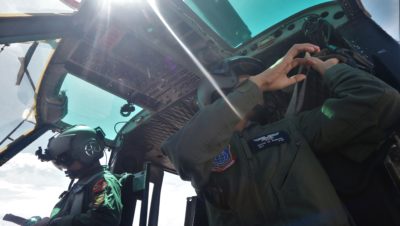When former President Rodrigo Duterte assumed office in 2016, he fulfilled one of his campaign promises that his administration would pursue an independent foreign policy throughout his term.
Deeply rooted, foreign influence can sometimes be a tough nut to crack despite the best efforts of Duterte. Take for example the case of the Australian military slowly marking its footprints in Mindanao with the same scheme used by the United States in its return to the country through the Visiting Forces Agreement (VFA) after the Americans folded up their Naval Base in Subic Bay in the 1990s.
While the VFA entered into by the Philippines prohibits the construction of big military camps, the accord allows the US to set up less conspicuous military facilities inside bases of the AFP. As reports showed, Australia, considered a middle military power, is establishing its forward presence in Mindanao by building nondescript military facilities inside a Zamboanga camp operated by the AFP.
Aussie’s military installations, which include troops, are believed to be used as spy hubs against their potential rivals and launching areas for rapid deployment of special operations.
A veteran politician, who saw the cycle of conflict and rebellion in Mindanao, Duterte knew too well that becoming subservient to the interests of any foreign power poses a threat to the external security of the country and fuels unrest internally.
A country like the Philippines, which has a weak military in terms of force projection against other state actors, will have limited options to maneuver at a negotiating table if its foreign policy is oriented to an alliance or other nations’ geopolitical strategy.
With our military having just started its modernization, we stand no chance of a confrontation against stronger nations if a skirmish arises. The best way to get concessions for us in any dispute with other countries is to stay neutral with our foreign affairs trajectory and keep engaging potential adversaries through bilateral talks.
To free us from the perception of doing the bidding of a foreign government, we need to revisit our position of allowing foreign bases in our country, even if the facilities are scattered military installations that can be concealed easily from the public eye.
In the event of a conflict by major competing powers, a small country like ours will likely get dragged into the fight as an unintended consequence, with these satellite bases will become juicy targets by their peer enemies. Imagine the scale of destruction and possible collateral damage that the unstoppable hypersonic missiles may inflict on us when they start raining from the skies of our territory.
With the new administration still minting and polishing its foreign policy, it must continue to pursue an independent approach to dealing with other nations. More so in weighing the costs and benefits of having another foreign military asset on our soil like the one operated by Australia in Mindanao./PR
comments are temporarily disabled.













